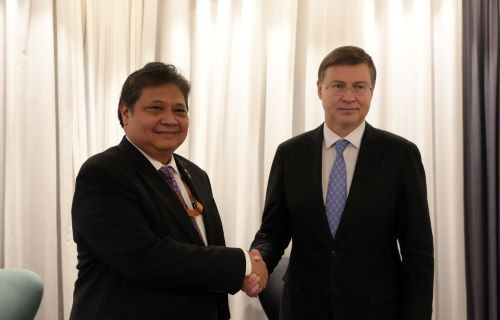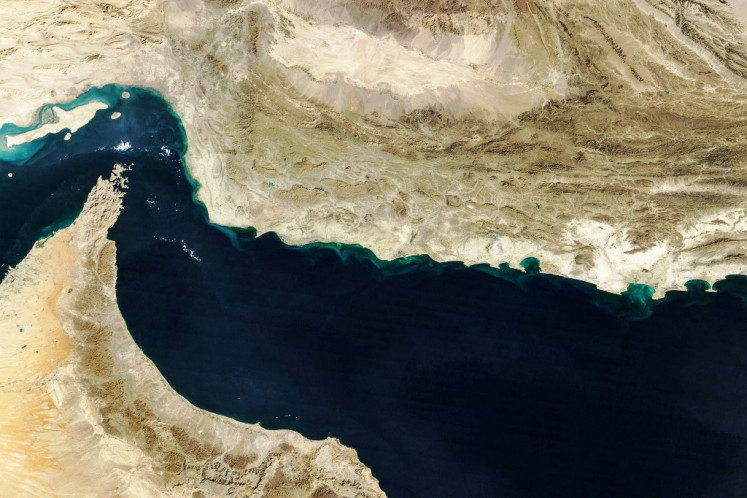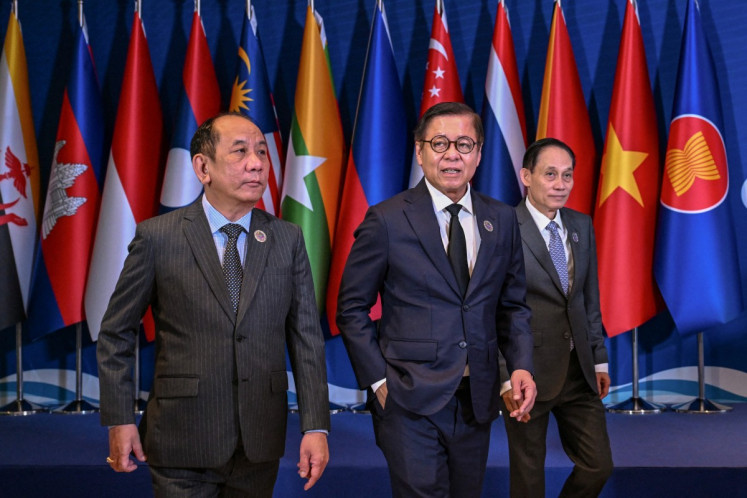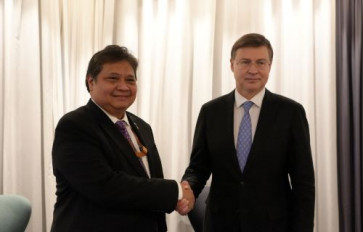Popular Reads
Top Results
Can't find what you're looking for?
View all search resultsPopular Reads
Top Results
Can't find what you're looking for?
View all search resultsExpanding trade horizons: Economic diplomacy in uncertain times
Expanding trade partnerships to non-traditional markets is a must as it will allow Indonesia to diversify its economy and reduce its reliance on major, established players
Change text size
Gift Premium Articles
to Anyone
 Partnership talks: Coordinating Economic Minister Airlangga Hartarto (left) and European Commission Executive Vice President Valdis Dombrovskis shake hands during a meeting on Dec. 12, 2022 in Jakarta held to accelerate Indonesia-EU Comprehensive Economic Partnership Agreement negotiations. (Courtesy of /the Office of Coordinating Economic Minister)
Partnership talks: Coordinating Economic Minister Airlangga Hartarto (left) and European Commission Executive Vice President Valdis Dombrovskis shake hands during a meeting on Dec. 12, 2022 in Jakarta held to accelerate Indonesia-EU Comprehensive Economic Partnership Agreement negotiations. (Courtesy of /the Office of Coordinating Economic Minister)
I
ndonesia has emerged as a major economic power in the region, consistently achieving robust economic growth. In 2023, Indonesia’s gross domestic product (GDP) reached Rp 20.89 quadrillion (US$1.31 trillion), with an annual growth rate of 5.05 percent.
This growth trajectory is expected to continue, fostering long-term economic resilience. However, the global economy has become increasingly volatile, starting with the shaky aftermath of the COVID-19 pandemic and now exacerbated by various geopolitical tensions, including the ongoing tariff skirmish between the United States and China.
In response to these challenges, Indonesia has proactively expanded its trade horizons and intensified its trade diplomacy by establishing new trade agreements and preferential trade agreements (PTAs).
These agreements involve countries conceding some of their defensive measures to allow more goods, services or investments to flow into their jurisdictions. The ultimate goals are to secure better market access, attract foreign investment, foster more intensive people-to-people contact and integrate more effectively into global supply chains.
Indonesia currently has several high-profile trade agreements in force, including the Indonesia-Japan Economic Partnership Agreement (IJEPA), the Indonesia-Korea Comprehensive Economic Partnership Agreement (IK-CEPA), the Indonesia-Australia Comprehensive Economic Partnership Agreement (IA-CEPA) and the Regional Comprehensive Economic Partnership (RCEP).
The RCEP, in particular, is a monumental agreement that includes all 10 ASEAN member states and five other major trading partners: China, Japan, South Korea, Australia and New Zealand.
These agreements provide Indonesian businesses with a significant network of trade opportunities. However, in these uncertain times, Indonesia must do more to open new trade opportunities with developing country partners, particularly through PTAs. PTAs are simpler forms of free trade agreements (FTAs), focusing primarily on eliminating customs duties for a limited number of tariff lines without any liberalization commitment on services, investment, intellectual property or other issues typically covered under FTAs or CEPAs. To date, Indonesia has entered into bilateral PTAs with Pakistan, Mozambique and Iran.


















